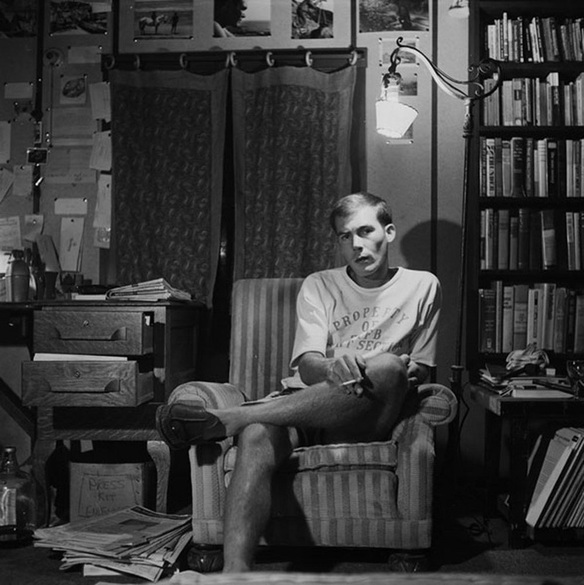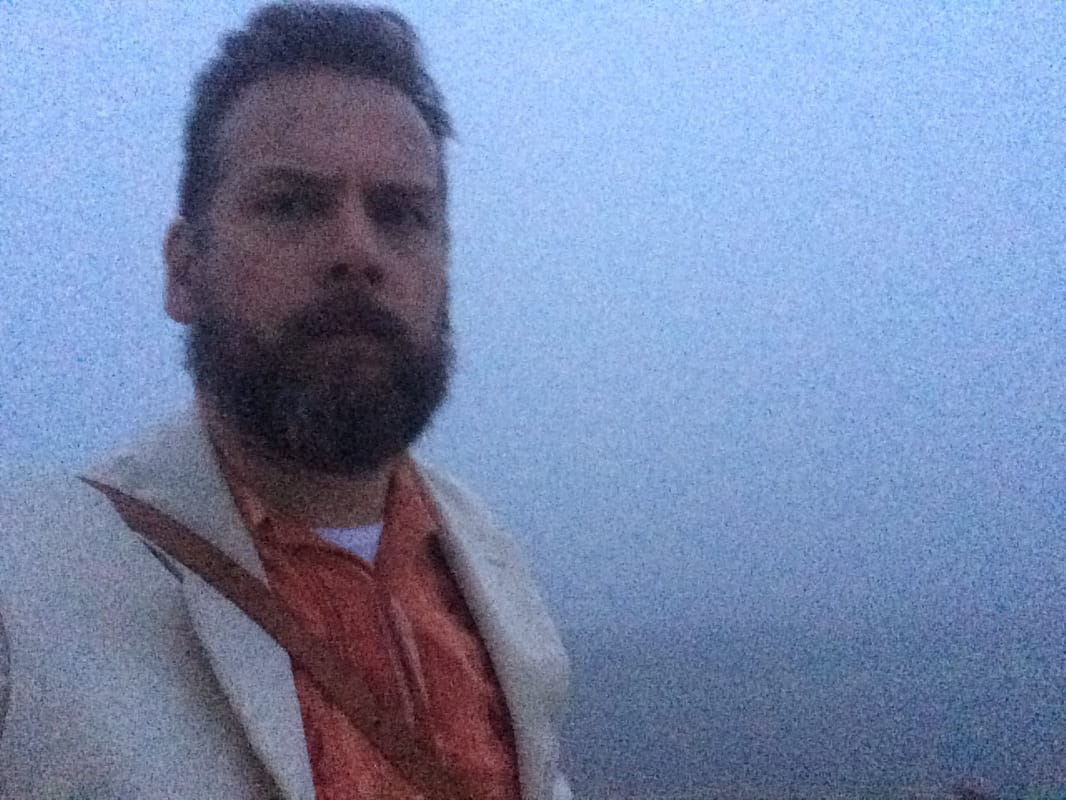|
Every morning, the last few weeks, I sit on the toilet and read a couple of Hunter S. Thompson's letters. Sometimes I read several. It largely depends on what I had for dinner.
I've always loved Thompson's writing. I loved it long before I understood it, that is to say understood what it was about. I read Generation of Swine, a collection of screeds and columns, in 1989 when I was 15 and barely knew what on earth he was on, the names were only vaguely familiar, the issues often far away from where I was, but as someone who had never shouted at a policeman, and never would, I respected that ballsy hellbent fury and crazy wit. The way his words were just made of knuckles and an abiding sense that he stood up for the kind of freedom that everyone else just uses as a watchword, but is secretly scared of getting. He was willing to risk physical danger - his drugs, his Hell's Angels stint, his running for public office - or worse still embarrassment, in order to do whatever it was he wanted to do, or felt was right. Of course, I didn't agree with everything he stood for, but I knew that in the movie Hunter would be Cool Hand Luke, defying the prison authorities, never going along to get along, whereas I'd be 'taking them off here, boss', if I was lucky, playing a banjo. Later I read Fear and Loathing in Las Vegas, but again when I was too young to get it. What I latched onto was the voice. The bark he put into sentences. It made you sit up straight. It's now a book I reread every two years or so and it gets funnier and sadder each time. Fear and Loathing on the Campaign Trail isn't as perfect as his Vegas spree, but it has some roaring madness. Since then I've been picking over his journalism, his letters, a couple of biographies. He's a writer I always go back to for that attitude, the sacred anger, the voice and the courage above all. In his Obituary to a Freelancer, Thompson basically writes his own, a young man considering the fate of a progenitor, a hero, who dies broke and unsung. It wasn't to be Thompson's fate and even at the time of writing it, he felt himself to be on the cusp of some huge success. And yet he feels the lurking price of taking your own road, the imminent possibility of collapse and destruction and the fickle ingratitude of a society which will read and love the words, but deplore and judge the life. I'm not particularly interested in the later veneration of 'Gonzo', which veered into parody masked as praise and The Rum Diary was a good argument for keeping unpublished juvenilia unpublished, but HST of the letters, of the journalism and the books, that voice and that large door kicking personality serves as an inspiration to us all. It's as good a way to start the day as any.
2 Comments
Reading Fear and Loathing in Las Vegas, high, at two am, in the college dorms absolutely shifted my perspective on life. The high tide soliloquy is some of the saddest writing put to paper. As with all writing, there's plenty in the notes and letters and random writings which could use some revision, but the Voice of Truth--a twisted, real, honest truth--that leaves scars of a good kind.
Reply
You read Thompson once and your prose is never the same again. The same is true of Steadman's drawings. Like Josh says: scars of a good kind. I met Steadman once on a freaky day in London. The way he threw ink across the page to scrawl his name on my books was like magic. 'Genius' is used too often about people who are mediocre but the two of them together, Thompson and Steadman, produced something worthy of that name and more.
Reply
Leave a Reply. |
AuthorJohn Bleasdale is a writer. His work has appeared in The Guardian, The Independent, Il Manifesto, as well as CineVue.Com and theStudioExec.com. He has also written a number of plays, screenplays and novels. Archives
March 2019
|

 RSS Feed
RSS Feed


